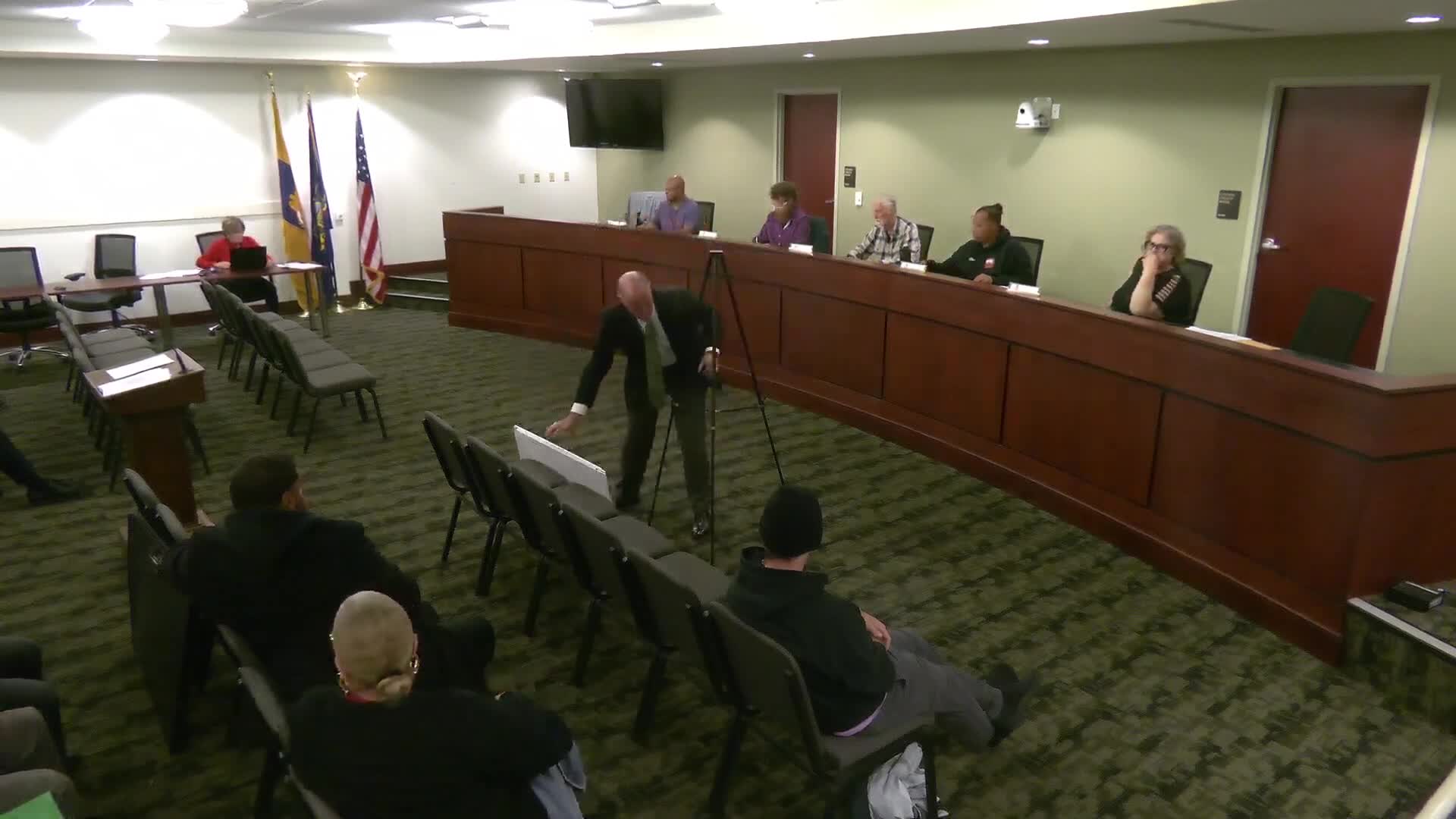Planning commission declines to recommend vape and smoke‑shop zoning amendment as written, cites enforcement and impacts
Get AI-powered insights, summaries, and transcripts
Subscribe
Summary
The panel voted to not recommend the proposed ordinance amendment that would add a defined 'vape and smoke shop' use to the zoning code; commissioners and staff raised questions about enforcement, the 10% merchandise threshold, proximity rules and potential effects on corner stores.
The York City Planning Commission voted to not recommend approval of a proposed zoning ordinance amendment that would codify “vape and smoke shop” as a defined use and make it a special exception in the EC zoning district while requiring a variance in other districts.
City staff described the draft amendment as adding a use definition and related rules (including a 10% threshold for vape/smoke merchandise, parking requirements and location restrictions such as a 500‑foot buffer from certain uses). Theresa Geneskin, introduced by staff as a city council member working on the amendment, told commissioners the ordinance is intended to regulate access for minors and the proliferation of stores that primarily sell vaping and unregulated cannabinoid products.
Commissioners asked multiple detailed questions about enforcement and the draft thresholds. Commissioner Moore asked for the legal ramification when a retailer sells regulated products to minors; staff said the city solicitor and enforcement agencies would have roles but could not provide a definitive enforcement procedure at the meeting. Commissioners also questioned the choice of a 10% merchandise threshold (used to define a shop whose primary business is vape/smoke products) and how that percentage would be verified; staff said it was modeled in part on other municipalities and that verification would likely rely on sales records or inspection but that logistics needed more work.
Several commissioners expressed discomfort with specific buffer provisions, including a 500‑foot distance from religious structures; one noted similar buffers are used for liquor licensing and asked how consistently the rule would be applied. Commissioner Velez and others urged the council to consider data collection and a more targeted approach, such as limiting product display or placing items behind counters rather than blanket location prohibitions.
After discussion the commission voted on a motion “to not recommend approval of the ordinance discussed as written.” The motion passed on a roll call vote; commissioners said the commission’s role was to relay concerns and that the council and solicitor had already heard many of the same substantive points. Staff noted existing shops would be treated as legal nonconforming uses and would not be forced to close under the draft, but nonconforming locations could lose that status if they change or violate the law.
What happens next: the planning commission’s negative recommendation and the meeting’s transcript will be forwarded to City Council and the ordinance’s sponsor for further revision and additional study, including suggested data collection on existing store locations and sales composition.
